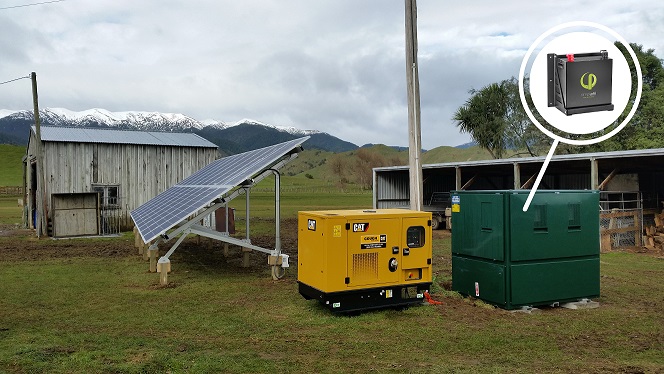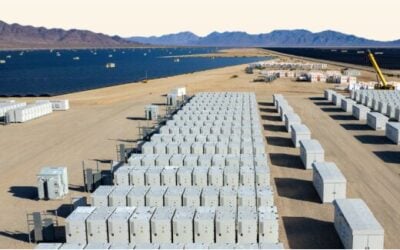
One of New Zealand’s main gas and electric distribution companies has turned to distributed energy storage systems as a cost-effective alternative to long-distance wires and related infrastructure.
Powerco, operating in a 39,000 km2 service area on New Zealand’s North Island, maintaining electricity supplies for over 300,000 people, is constructing a number of “all-in-one” microgrid-style offerings in remote parts of the country, called “Base Power” systems.
Base Power installations combine solar, typically on customer rooftops, with energy storage batteries and a diesel generator for backup. Powerco calls it “urban quality power…in the most remote of locations”. Powerco said it has found Base Power installations to be more cost-effective than upgrading the network to improve supply with traditional overhead wires and power management or conversion infrastructure.
Powerco has approved 20 initial units to be delivered by helicopter to the remote locations, having trialled the all-in-one solutions for “several years”. They will be deployed over the next 12 months by local company The Downs Group, which will be responsible for ongoing maintenance, in addition to full installation and assembly duties.
Try Premium for just $1
- Full premium access for the first month at only $1
- Converts to an annual rate after 30 days unless cancelled
- Cancel anytime during the trial period
Premium Benefits
- Expert industry analysis and interviews
- Digital access to PV Tech Power journal
- Exclusive event discounts
Or get the full Premium subscription right away
Or continue reading this article for free
For the energy storage portion of the projects, Powerco has ordered 3.4kWh lithium batteries from SimpliPhi Power. The US manufacturer has a long background in off-grid power, having begun life offering energy solutions to on-location filming for movies and tv. SimpliPhi claims its non-toxic lithium ferro phosphate battery chemistry eliminates the risk of thermal runaway, where some cobalt-based lithium batteries can present a fire hazard.
“Powerco deserves praise for their disciplined approach to developing an economic model that demonstrated unequivocally the cost effectiveness and reliability of distributed power assets at the fringes of the grid,” SimpliPhi CEO Catherine Von Berg said.
“The utility calculated that off-grid distributed and renewable assets combined with storage is more cost effective than extending the reach of the grid by two kilometers, or having to repair the transmission lines of approximately 20 poles. Add to that calculus the environmental benefits of replacing centralised fossil fuel generation and suddenly the cost benefit analysis overwhelmingly supports the Base Power off-grid units – creating a win-win with better energy security for both the utility and their customers”.





